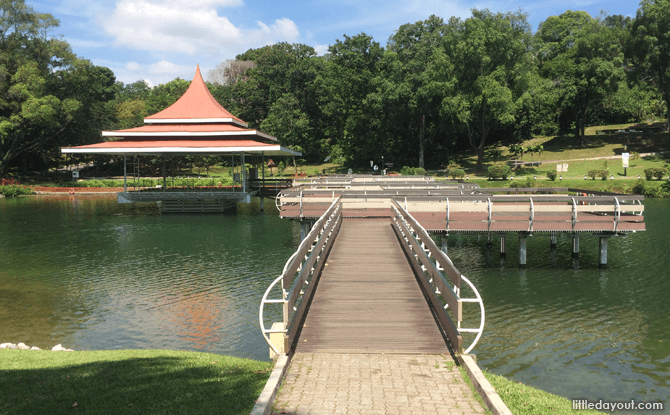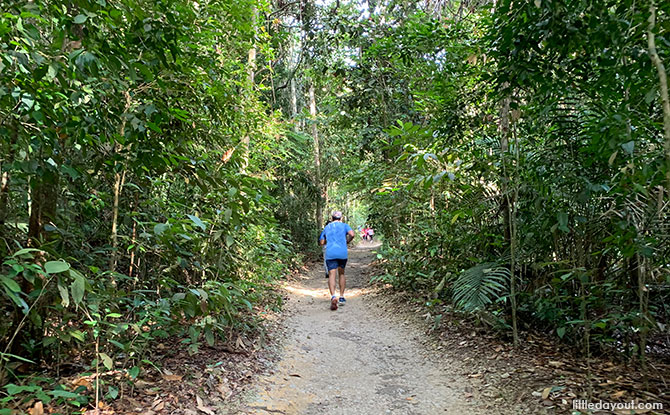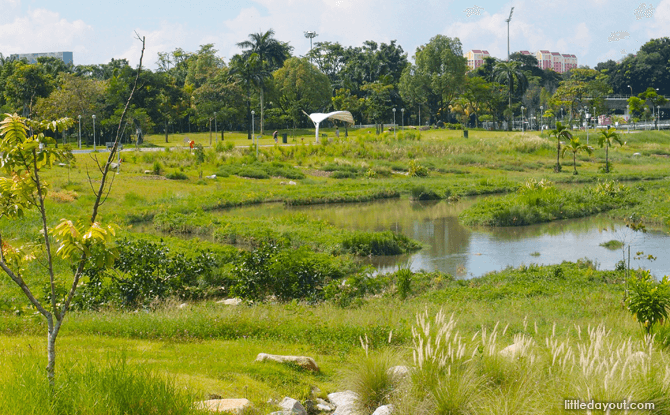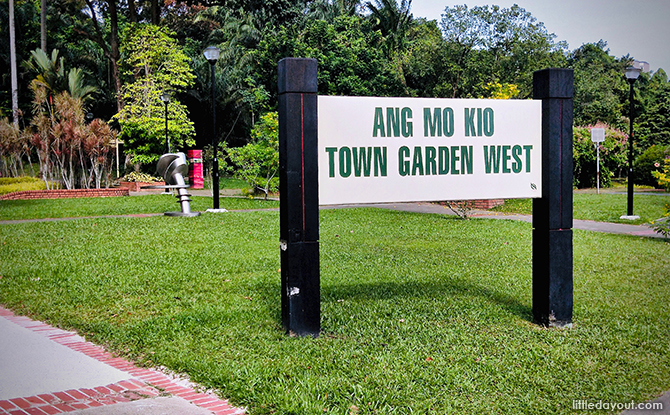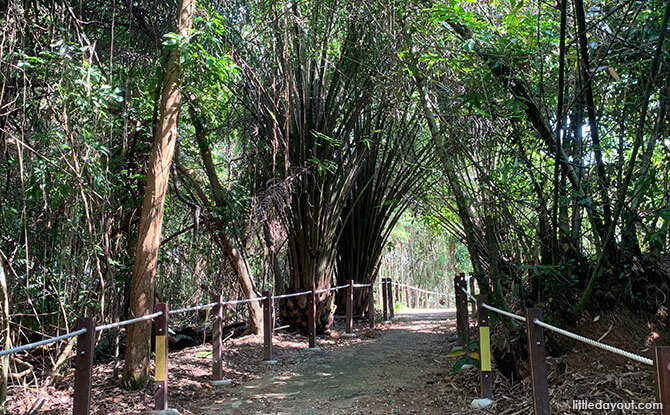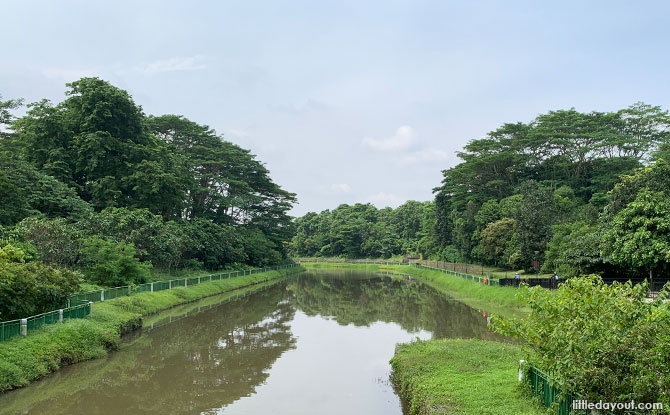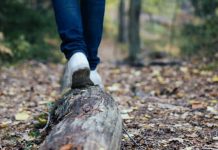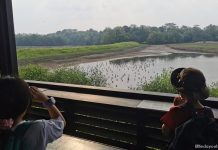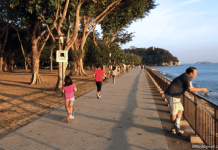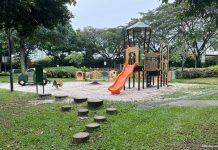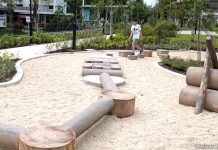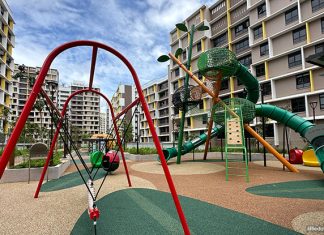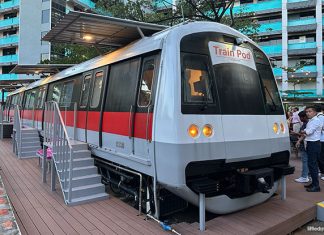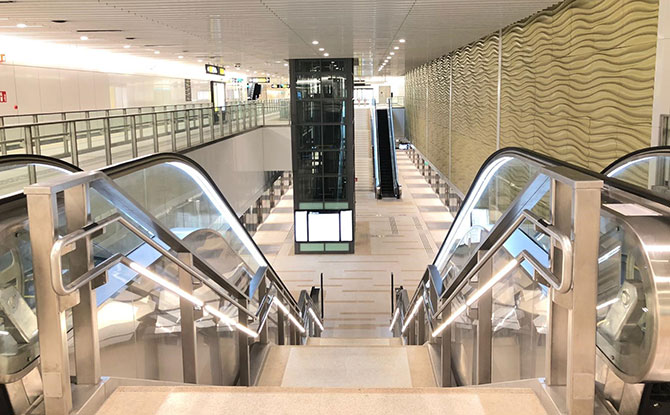
Stage 2 of the Thomson-East Coast Line starts operations on 28 August 2021. Six MRT stations – Caldecott, Upper Thomson, Bright Hill, Mayflower, Lentor and Springleaf – will start to shuttle commuters along the 13 km stretch of the line.
In addition to providing greater convenience to those living long the Thomson belt, Stage 2 of the Thomson-East Coast Line also spells greater convenience for nature and park lovers.
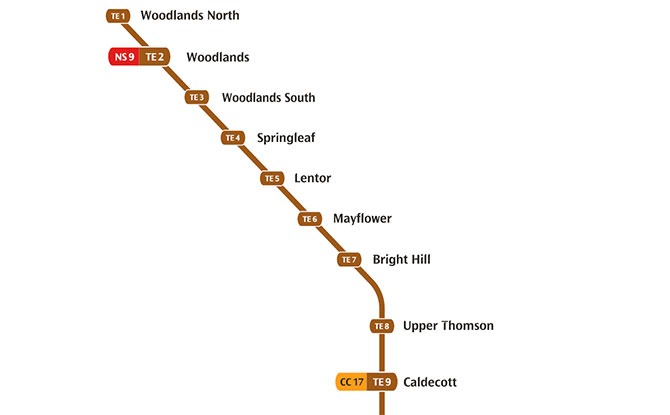
The line runs up alongside the eastern fringe of the Central Catchment Nature Reserve, creating an alternative means to access the various parks along that corridor.
Here’s a guide to the parks along the Thomson-East Coast Line – so you can get in your dose nature from the MRT.
FREE FOR LITTLE DAY OUT PARENTS: Sign Up for a Free Trial with ACT 3 Academy to Find Out If Drama Classes are Right for Your Child
3 Recycling Adventures: Fun Ideas For Kids & Families
1:1 & Small Group English Lessons: How to Get Personalised, English Help
Thomson-East Coast Line 2 Guide For Parks & Nature Lovers
Caldecott Station
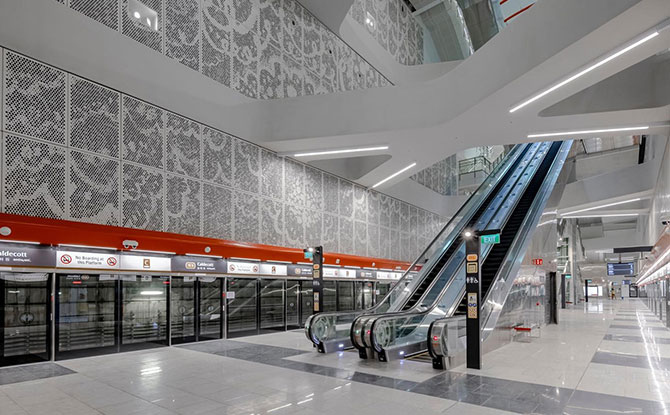
Caldecott MRT Station is an interchange station which connects the Thomson-East Coast Line to the Circle Line. Located along Toa Payoh Rise, it serves those who live in the vicinity of the Toa Payoh Rise and Thomson Road.
Caldecott Station is also the closest MRT station to MacRitchie Reservoir Park. It is around 760 metres from Caldecott Station to scenic park.
Activities at MacRitchie Reservoir Park include enjoying the boardwalks, the historic landmarks in the park and even kayaking. MacRitchie Reservoir Park is also a good starting point for those who wish to try out the various trails around the waters of the reservoir.
Upper Thomson Station

Upper Thomson MRT is located next to the Church of the Holy Spirit, with an exit at Thomson Plaza.
It is not far from the fringe of the Catchment Area. In fact, if you head to the end of Soo Chow Way or Jalan Lembah Thomson, you will find trails that lead to the MacRitchie Nature Trail.
The closest nature park to Upper Thomson MRT is a bit of distance away. It is the lovely Windsor Nature Park, which is around 1 km to the north from Upper Thomson MRT.
Windsor Nature Park is known for its boardwalks and freshwater streams. It is also a good starting point for those who wish to do the cross-Catchment Area hike.
Bright Hill Station
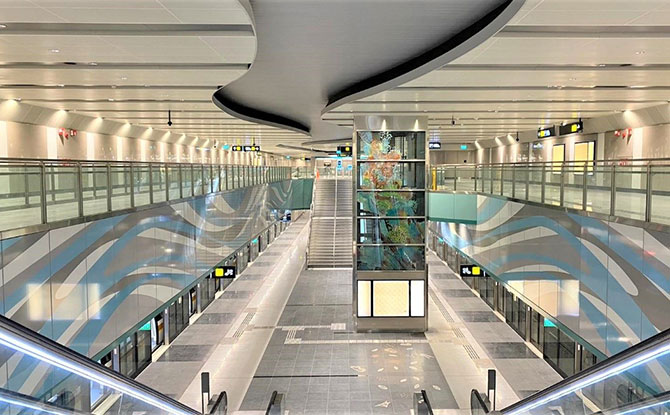
Bright Hill Station is located along Sin Ming Avenue and serves the Faber Garden and Sin Ming Garden residential areas.
For those who love parks, it is also located at the fringe of Bishan-Ang Mo Kio Park. Walk around 300 metres from the station to arrive at the western half of the large Bishan Ang Mo Kio Park, close to the Pond Gardens.
It is also around 1 km from Bright Hill Station to Windsor Nature Park.
Mayflower Station
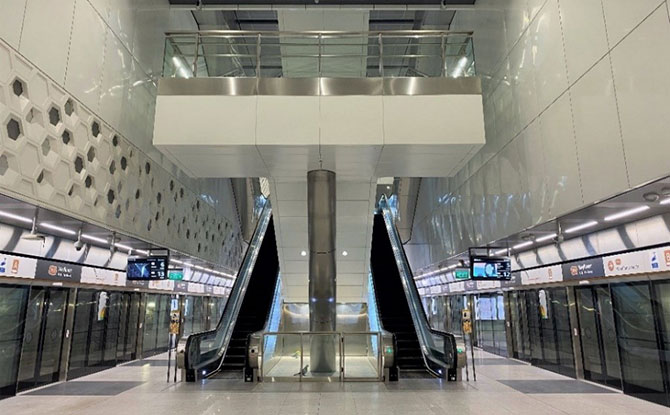
Mayflower MRT Station along Ang Mo Kio Avenue 4 serves the mature Ang Mo Kio and Kebun Baru estate.
Take a 600-metre walk through the surrounding estate and you will arrive at the top of Ang Mo Kio Town Garden West. This park has nice landscaping including a picturesque row of trees.
Lentor Station
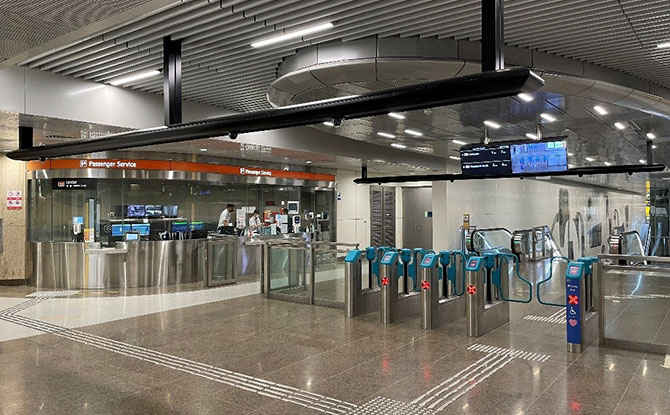
Lentor MRT Station is located along Lentor Drive, just off Yio Chu Kang Road. It is situated to serve the residents of the Lentor and Teacher’s Estate.
There aren’t any large parks which are particularly close by. The closest one would be Thomson Nature Park along Upper Thomson Road, 2.5 km away. If that seems too far to reach on foot, you can take bus services 138 or 860 to reach Thomson Nature Park instead.
Once at Thomson Nature Park, you can explore the remnants of an old village. Read stories about the families that once called the area home.
Springleaf Station
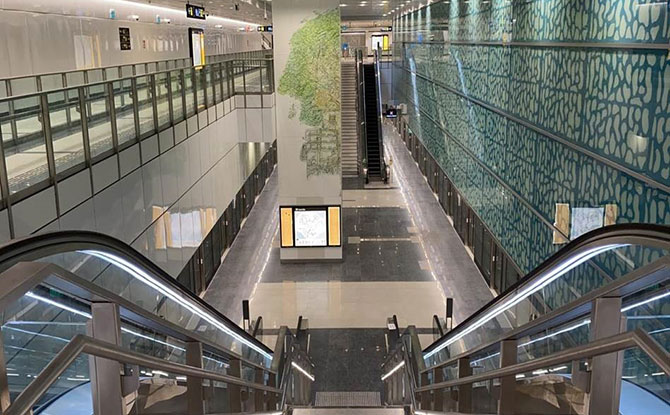
Springleaf Station is located at Thong Soon Green and Springleaf Road. It provides easy access to the various food and dining establishment along Upper Thomson Road. Springleaf Station connects onwards to Woodlands South Station and the rest of the Thomson-East Coast Line 1.
A short distance away from Springleaf Station is Springleaf Nature Park, a small park that was once an oil palm plantation. Running through Springleaf Nature Park is Sungei Seletar. Those who are up for adventure can take the park connector from Springleaf Nature Park towards Lower Seletar Reservoir and the Yishun / Khatib area.





